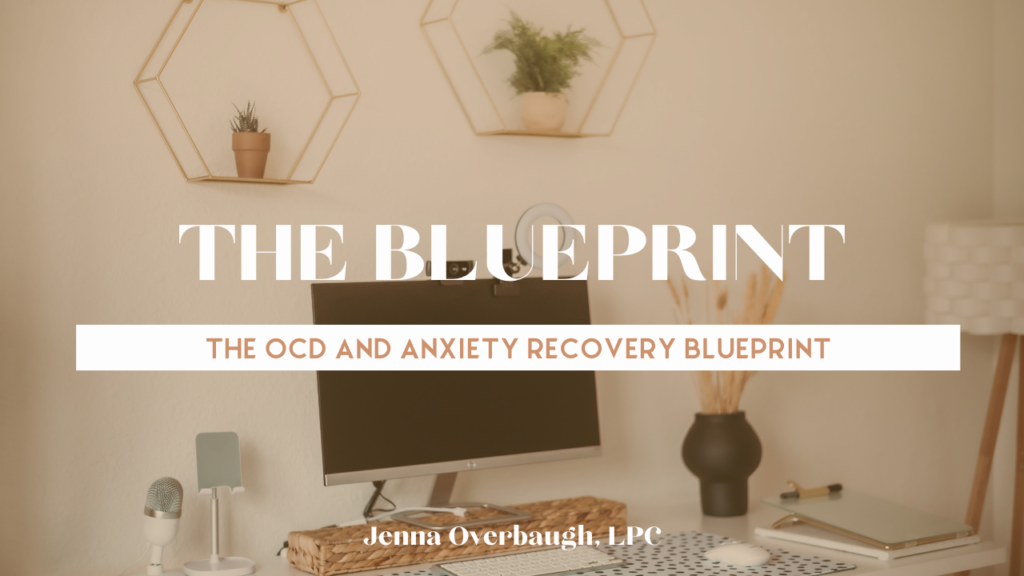OCD and Depression – A Complicated Symptom Presentation
November 28, 2023
Living with OCD can be a challenge on its own, but when the weight of depression enters the equation, it can create a complex and often misunderstood interplay of symptoms. As an OCD specialist, I’ve witnessed how these two conditions can overlap, making diagnosis and treatment more intricate. In this blog, we’ll explore the intricate relationship between OCD and Depression Symptom Presentation, how they interact, and how evidence-based treatments like Exposure and Response Prevention (ERP), Acceptance and Commitment Therapy (ACT), and Behavioral Activation (BA) can provide hope and relief.
The Coexistence of OCD and Depression
When OCD and depression coexist, it’s more than just a coincidence. OCD is often characterized by persistent intrusive thoughts and compulsive behaviors, while depression encompasses feelings of sadness, hopelessness, and a lack of interest in life. The combination of these two conditions can lead to a unique set of challenges for both patients and clinicians.
Obsessions, Compulsions, and Emotional Distress
OCD is marked by obsessions, the unwanted, distressing thoughts, and compulsions, the repetitive actions to alleviate anxiety. These obsessions often center around themes like contamination, harm, or unwanted thoughts, but it’s important to note that OCD can latch onto any theme. When depression enters the picture, it magnifies the emotional distress associated with these obsessions, intensifying the negative impact on one’s overall well-being.
The Vicious Cycle
Depression and OCD feed into each other, creating a vicious cycle. The obsessions and compulsions of OCD can trigger feelings of guilt, shame, and inadequacy, which are hallmark emotions in depression. Likewise, the low mood and lack of energy in depression can make it harder for individuals to resist their OCD rituals. Understanding this cycle is vital for effective recovery.
Evidence-Based Interventions
Here’s where evidence-based approaches come to the rescue. As an OCD specialist, I employ Exposure and Response Prevention (ERP), Acceptance and Commitment Therapy (ACT), and Behavioral Activation (BA) to help individuals tackle the complex nature of OCD and depression.
ERP – Facing Your Fears
Exposure and Response Prevention (ERP) is an evidence based approach for treating and addressing OCD. By gradually confronting obsessive fears without engaging in compulsions, patients learn to tolerate anxiety. For those with comorbid depression, ERP not only targets OCD but also helps reduce the emotional distress that fuels depression.
ACT – Mindful Living
Acceptance and Commitment Therapy (ACT) focuses on teaching patients to accept their thoughts and emotions without judgment and commit to meaningful life values. This approach can be particularly beneficial for individuals with both OCD and depression, as it fosters emotional resilience and promotes well-being.
Behavioral Activation – Routine, Daily, and Valued Activities
Behavioral Activation is an evidence based approach for those who struggle with depression and low mood. It is an empirical treatment that is aimed at helping individuals re-engage in meaningful, valued activities as well as other activities they have reduced or stopped doing due to symptoms of depression. Even those who have OCD alongside depression can benefit from incorporating Behavioral Activation into their recovery journey.
Treatment Options
Individuals with comorbid OCD and depression require plans that address both conditions simultaneously. As an OCD specialist, I work with individuals to develop strategies that incorporate ERP, ACT, and BA to ensure they receive the most effective and tailored care.
The Road to Recovery
The journey to recovery for those with comorbid OCD and depression may be challenging, but it’s certainly not impossible. With evidence-based treatments, a supportive network, and the guidance of a specialist, individuals can find hope and relief in their struggle.
The intertwining of OCD and depression can complicate symptom presentation, but with a specialized and comprehensive approach, it’s possible to break the cycle and regain control. As an OCD specialist, I’m committed to helping individuals navigate this intricate relationship and guiding them toward a brighter, more fulfilling future. That’s why I emphasize Behavioral Activation throughout my digital course, The OCD and Anxiety Recovery Blueprint.
You can learn more about The OCD and Anxiety Recovery Blueprint and its 3 programs here . Not sure which program is the best course of action for you? Take the free quiz here to answer some questions and see which program would be the right fit.
Resources for Your OCD and Anxiety Recovery
To learn more about OCD and anxiety recovery strategies and resources, visit my website at www.jennaoverbaughlpc.com. Here you can find additional support and guidance.
Want more content like this? Check out some of my related podcasts and The OCD and Anxiety Recovery Blueprint below.

DISCLAIMER: Please keep in mind that Jenna is not your therapist. She does not provide you with individualized recommendations or advice. The information provided is intended as educational information only. Jenna cannot tell you what you should do, what you shouldn’t do, or give recommendations based on your unique situations or circumstances. Nothing on this page or Site should be construed as therapeutic recommendation or personalized advice.
If you are in need of such services, please consult with a physician or other medical provider right away to determine the best course of action for you. We are not responsible for your use of this page, this website, or the contents within. NEVER DISREGARD PROFESSIONAL MEDICAL ADVICE OR DELAY SEEKING MEDICAL TREATMENT BECAUSE OF SOMETHING YOU READ OR ACCESSED THROUGH THIS WEBSITE AND CONTENT. For more information, please read the Terms and Conditions, Privacy Policy, and Disclaimer. Your continued use of this platform, this page, and the contents within constitutes as your agreement with this agreement.
© 2023 Jenna Overbaugh, LLC, All Rights Reserved
most popular episodes
Love my podcast?
Episode 112: Postpartum OCD and False Memory OCD
Imagine how in depth I can go in an online course. Instantly downloadable and game-changing. Take the next step towards an amazing life.